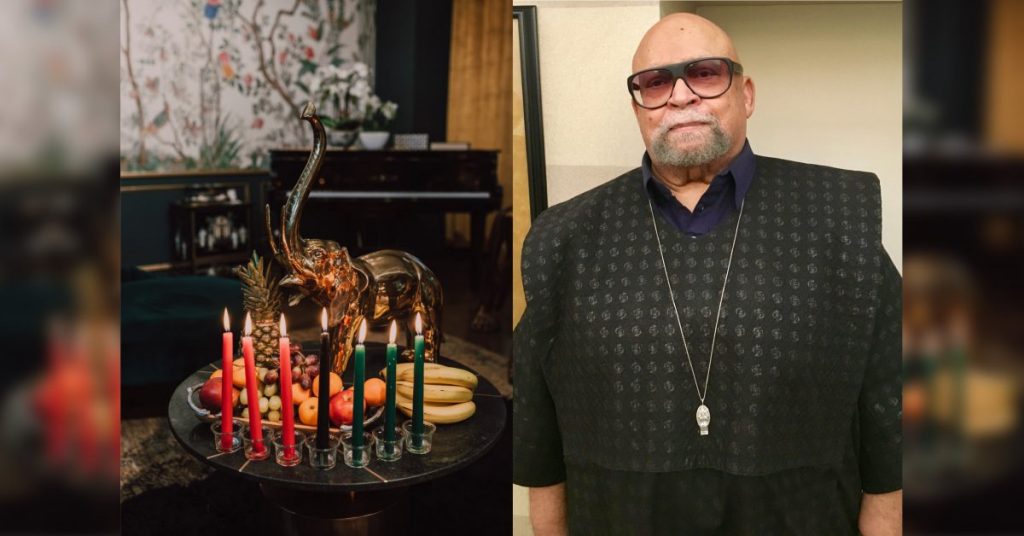Creating Kwanzaa: a conversation with Maulana Karenga
50 years ago, Dr. Maulana Karenga developed the core tenants of Kwanzaa, the Nguzo Saba.

Maulana Karenga, the creator of Kwanzaa, in 2016.
Today is the first day of Kwanzaa. Now in its 50th year, the weeklong holiday is celebrated by the African diaspora in the U.S. and across the world. Maulana Karenga is the creator of Kwanzaa. He tells WDET’s Eli Newman that he came up with the seven principles of Kwanzaa, known as the Nguzo Saba, to represent the holiday’s Pan-African roots.
Interview highlights
Using Swahili to represent the Nguzo Saba (Seven Principles)
“I choose the whole of Africa as my homeland and heritage. It’s a Pan-African language. There’s a concept in Zulu known as Ubuntu: I am a person through other persons. That means I get my sense of identity, purpose and direction in my relationship with others. It teaches us to walk in dignity affirming, life enhancing ways as African peoples. The hub and hinge of which the holiday turns are the communitarian values of the Nguzo Saba, the Seven Principles, which are Umoja (Unity), Kujichagulia (Self-Determination), Ujima (Collective Work & Responsibility), Ujamaa (Cooperative Economics), Nia (Purpose), Kuumba (Creativity), Imani (Faith).”
On the social climate that birthed Kwanzaa
“I created Kwanzaa in the context of the Black Freedom Movement. It was a time of revolution and revolt. When I was at school at UCLA getting my doctorate, there was a need to build a movement. I created Kwanzaa as an instrument of struggle, to reaffirm our rootedness in African culture. We live in a society that is vocally individualistic and our argument as African people was that we are because each of us is.”
The practices of Kwanzaa
“Each of the seven days focusses on one of the seven principles of the Nguzo Saba. There are five overarching themes that come from the ancient first-fruit celebrations, a time where African people would come together: an in-gathering of people to reaffirm the bonds between them, a special time for reverence of Creator and creation, commemoration of the past, recommitting to high values, and celebrating the goodness in everything.”
On creating an international holiday
“I first started it with my organization Us. Then we shared it with the movement. A lot of African people from across the world came to the U.S. at that time; people were alive with the idea of doing things in an African way. One of the first principles was not only should we be united as African people in our common struggle to free ourselves and be ourselves, but we should practice self-determination, make our own unique contribution to how our society and world are re-conceived.”
Trusted, accurate, up-to-date.
WDET strives to make our journalism accessible to everyone. As a public media institution, we maintain our journalistic integrity through independent support from readers like you. If you value WDET as your source of news, music and conversation, please make a gift today.
